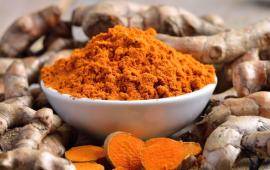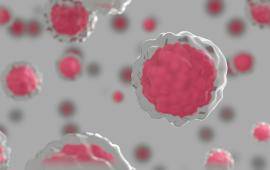
Intravenous Vitamin C and Cancer
Vitamin C infusion for cancer is very helpful for cancer patients undergoing chemotherapy treatments
Vitamin C is the most important antioxidant in extracellular fluid. It is necessary for the synthesis of carnitine, neurotransmitters, correct function of cytochrome P450 and detoxification of substances.
There is scientific evidence that intravenous vitamin C administered at high doses increases cellular respiration and produces an increase in ATP production with the consequent increase in energy production at the cellular level. This action gives it great relevance in the treatment of chronic degenerative diseases and cancer.
High-dose intravenous vitamin C as an integrative treatment in cancer
The doses used vary between 10 gr and 50 gr, depending on the type of tumor, the stage and the effects we try to achieve: stimulating the immune system, antioxidant effect or antitumor effect.
Vitamin C is considered one of the main free radical scavengers of the organism, protecting cell membranes from the oxidative action of free radicals. It has been proven that cancer patients have low blood vitamin C levels.
Vitamin C is necessary for a correct synthesis of collagen. Cell membrane and the extracellular matrix need collagen to have normal structure for preventing tumor invasion and metastasis. The amount of collagen in cell membrane and extracellular matrix determines the tissue resistance to tumor infiltration.
Vitamin C is essential to ensure proper functioning of the immune system. It is needed for the synthesis of immunoglobulins. White blood cells contain high concentrations of vitamin C.
Intravenous vitamin C administered at high doses has cytotoxic effect on tumor cells. This effect is due to the fact that it inhibits the use of pyruvate, necessary for aerobic glycolysis carried out by the cancer cell. It inhibits prostaglandins derived from arachidonic acid that increase cell proliferation.
Intravenous vitamin C can be used during chemotherapy treatments, to avoid the side effects as long as it is not administered within 48 hours before and after chemotherapy.
Scientific studies for antitumoral effect of intravenous Vitamin C in cancer
- Man S, Bi J eta la (2024) Vitamin C Inhibited Pulmonary Metastasis through Activating Nrf2/HO-1 Pathway. Mol Nutr Food Res. 2024 Mar;68(6):e2300706. doi: 10.1002/mnfr.202300706. Epub 2024 Feb 28. PMID: 38419398.
- O'Leary BR, Ruppenkamp EK, et al. (2022) Pharmacological Ascorbate Enhances Chemotherapies in Pancreatic Ductal Adenocarcinoma. Pancreas. 2022 Jul 1;51(6):684-693. doi: 10.1097/MPA.0000000000002086. Epub 2022 Sep 13. PMID: 36099493; PMCID: PMC9547864.
- Zaher A, Stephens LM, Miller AM et al (2022). Pharmacological ascorbate as a novel therapeutic strategy to enhance cancer immunotherapy. Front Immunol. 2022 Aug 22;13:989000. doi: 10.3389/fimmu.2022.989000. PMID: 36072595; PMCID: PMC9444023.
- Hamaguchi R, Narui R et al. (2021) Improved Chemotherapy Outcomes of Patients With Small-cell Lung Cancer Treated With Combined Alkalization Therapy and Intravenous Vitamin C. Cancer Diagn Progn. 2021 Jul 3;1(3):157-163. doi: 10.21873/cdp.10021. PMID: 35399313; PMCID: PMC8962782.
- Böttger F, Vallés-Martí A, Cahn L, Jimenez CR. (2021). High-dose intravenous vitamin C, a promising multi-targeting agent in the treatment of cancer. J Exp Clin Cancer Res. 2021 Oct 30;40(1):343. doi: 10.1186/s13046-021-02134-y. PMID: 34717701; PMCID: PMC8557029.
- Mansoor F, Kumar S et al.. (2021). Impact of Intravenous Vitamin C Administration in Reducing Severity of Symptoms in Breast Cancer Patients During Treatment. Cureus. 2021 May 6;13(5):e14867. doi: 10.7759/cureus.14867. PMID: 34113504; PMCID: PMC8177022.
- Giansanti M, Karimi T, Faraoni I, Graziani G. (2021). High-Dose Vitamin C: Preclinical Evidence for Tailoring Treatment in Cancer Patients. Cancers (Basel). 2021 Mar 20;13(6):1428. doi: 10.3390/cancers13061428. PMID: 33804775; PMCID: PMC8003833.
Ask for opinion and find an appropriate solution to your problem
ONLINE Doctor Consultation






